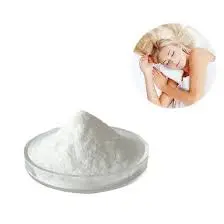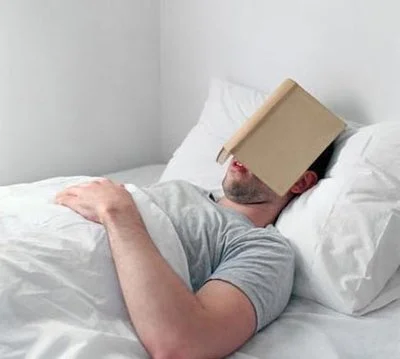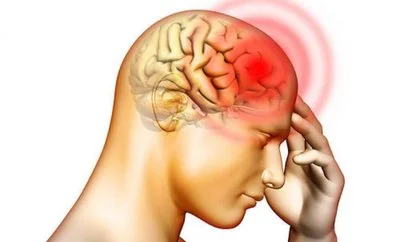Can melatonin cause headaches?
melatonin extract, a naturally occurring hormone in the body, has gained popularity as a supplement to aid sleep and regulate circadian rhythms. However, some users report experiencing headaches after taking melatonin. This article delves into the relationship between melatonin and headaches, exploring its effects, potential side effects, and ways to mitigate any discomfort.

How Melatonin Extract Affects Sleep and Headaches?
Melatonin, chemically known as N-acetyl-5-methoxytryptamine, plays a crucial role in regulating our sleep-wake cycles. The pineal gland in our brain produces this hormone naturally, with levels rising in the evening to promote sleepiness and falling in the morning to help us wake up.
Melatonin's Impact on Sleep Patterns
Melatonin Extract, often derived from synthetic sources, aim to mimic the body's natural melatonin production. These supplements can help reset the body's internal clock, particularly useful for those experiencing jet lag or shift work sleep disorder. By signaling to the body that it's time to sleep, melatonin can reduce the time it takes to fall asleep and increase overall sleep duration.

The Headache Connection
While melatonin is generally considered safe for short-term use, some individuals report experiencing headaches as a side effect. The relationship between melatonin and headaches is complex and not fully understood. Some theories suggest that melatonin's effects on blood vessels and neurotransmitters in the brain could potentially trigger headaches in sensitive individuals.
Dosage and Timing Considerations
The likelihood of experiencing headaches may be influenced by the dosage and timing of melatonin intake. Higher doses don't necessarily lead to better sleep and might increase the risk of side effects. It's generally recommended to start with a low dose (0.5-1 mg) and gradually increase if needed, under the guidance of a healthcare professional.

Common Side Effects of Melatonin Extract
While melatonin is generally considered safe and well-tolerated for most people, it is essential to be aware of potential side effects. Common reactions include headaches, dizziness, drowsiness, and nausea. These effects can vary depending on dosage and individual sensitivity, so it is recommended to consult a healthcare provider before starting melatonin supplementation.
Drowsiness and Grogginess
One of the most commonly reported side effects of melatonin extract is daytime drowsiness, particularly if it is taken at the wrong time or in an excessive dose. This can lead to feelings of grogginess, disorientation, and difficulty concentrating throughout the day. It’s important to adjust the timing and dosage to avoid disrupting your normal routine and productivity.
Mood Changes
Some users of melatonin have reported experiencing mood alterations such as irritability, anxiety, or mild depression. These effects are generally mild and temporary, often resolving after a short period. However, it's important to monitor any changes in mood closely, and if these symptoms persist or worsen, it's advisable to consult a healthcare professional for guidance.

Digestive Issues
Nausea, stomach cramps, and diarrhea have been reported by some individuals taking melatonin. These gastrointestinal effects are typically mild and may occur as the body adjusts to the supplement. If symptoms persist or become bothersome, it is advisable to reduce the dosage or consult a healthcare professional.
Vivid Dreams or Nightmares
Melatonin can affect dream intensity and recall. Some users experience more vivid dreams or even nightmares, which can be disconcerting but are generally harmless.
Dizziness and Balance Issues
In some cases, melatonin use has been associated with dizziness or a feeling of unsteadiness. This could potentially contribute to headache symptoms in some individuals.

Tips to Reduce Headaches from Melatonin Use
If you're experiencing headaches after taking melatonin, there are several strategies you can employ to minimize this side effect while still benefiting from melatonin's sleep-promoting properties.
Adjust Your Dosage
Start with the lowest effective dose, typically 0.5-1 mg, and gradually increase if needed. Sometimes, reducing the dosage can alleviate headache symptoms while still providing sleep benefits.
Optimize Timing
Take melatonin 1-2 hours before your desired bedtime. Taking it too early or too late can disrupt your natural sleep-wake cycle and potentially contribute to headaches.
Stay Hydrated
Dehydration can make headaches worse, so it's essential to drink enough water throughout the day to stay hydrated. However, be mindful not to consume large amounts of liquid right before bed, as this can lead to frequent bathroom trips and disturb your sleep.
Monitor Other Medications
Melatonin Extract can interact with various medications, including blood thinners and some antidepressants. Consult with your healthcare provider about potential interactions that could lead to headaches or other side effects.

Consider Alternative Formulations
If you're sensitive to melatonin supplements, you might consider trying different forms, such as time-release formulations or lower-dose options. Some people find that natural sources of melatonin, like tart cherry juice, are better tolerated.
Practice Good Sleep Hygiene
Melatonin supplements work best when combined with good sleep habits. Maintain a consistent sleep schedule, create a relaxing bedtime routine, and ensure your sleeping environment is dark, quiet, and cool.
Be Patient
Some individuals experience temporary side effects when first starting melatonin that subside over time. If headaches persist, consult with a healthcare professional to explore other options for improving sleep quality.
Conclusion
While melatonin extract can be an effective aid for sleep issues, it's important to use it judiciously and be aware of potential side effects like headaches. By starting with a low dose, timing it correctly, and implementing good sleep practices, many people can enjoy the benefits of melatonin without significant adverse effects. If you have concerns about using melatonin or are experiencing persistent headaches, it's always best to consult with a healthcare professional. For more information about melatonin and its effects, please contact us at information@sxrebecca.com.
References
1. Buscemi N, Vandermeer B, Hooton N, et al. The efficacy and safety of exogenous melatonin for primary sleep disorders. A meta-analysis. Journal of General Internal Medicine. 2005;20(12):1151-1158.
2. Andersen LP, Gögenur I, Rosenberg J, Reiter RJ. The Safety of Melatonin in Humans. Clinical Drug Investigation. 2016;36(3):169-175.
3. Costello RB, Lentino CV, Boyd CC, et al. The effectiveness of melatonin for promoting healthy sleep: a rapid evidence assessment of the literature. Nutrition Journal. 2014;13:106.
4. Zhdanova IV, Wurtman RJ, Regan MM, Taylor JA, Shi JP, Leclair OU. Melatonin treatment for age-related insomnia. Journal of Clinical Endocrinology & Metabolism. 2001;86(10):4727-4730.
5. Peres MF, Zukerman E, da Cunha Tanuri F, Moreira FR, Cipolla-Neto J. Melatonin, 3 mg, is effective for migraine prevention. Neurology. 2004;63(4):757.
_1730691017423.webp)




















